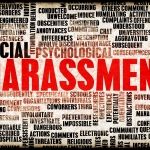On March 3, 2022, the Ending Forced Arbitration of Sexual Assault and Sexual Harassment Act was signed into law as an amendment to the Federal Arbitration Act (FAA). The Act makes all existing agreements addressing sexual harassment or sexual discrimination claims in contracts unenforceable. It does not apply to other claims bound by arbitration agreements, nor does it affect the enforceability of them, but provides employees under pre-dispute mandatory arbitration agreements and class action waivers an alternative to settling claims filed for sexual assault or harassment.
Arbitration agreements are not unique to companies with an organized labor presence. Both union and non-union employers may have forced arbitration agreements in place that require employees to mediate disputes with the business rather than court system. This can save time and money, but also reduces the publicity for both parties. Approximately 60 million employees work for corporations that have forced arbitration policies in place, according to a report by the Economic Policy Institute.
Prior to the passing of this amendment, there was separation between state and federal law on the enforcement of forced arbitration agreements. Following the #MeToo movement, several states enacted laws to limit the power of forced arbitration agreements. The FAA held preemptive power over state laws, resulting in most state cases to be overturned. This amendment aligns both state and federal laws, providing employees the option of where to file claims, regardless of any previously signed contract.
While arbitration can be an effective way to settle workplace issues, the process stops after internal arbitration is complete, with no option for an appeal. The EEOC oversees the administration of the new Act and is not bound by employer/employee arbitration agreements. This offers employees another option for remedy. According to EEOC Chair Charlotte A. Burrows,
"For too long, enforcement of pre-dispute mandatory arbitration agreements has served as a potential barrier to justice for individuals who have suffered assault or harassment at work. The EEOC cannot be forced into arbitration, nor are we bound by class action waivers in employment discrimination claims—including workplace sexual harassment disputes. As a result, the EEOC has been on the front lines of preserving access to the legal system for individuals subjected to mandatory arbitration agreements for workplace sexual harassment disputes… This legislation would increase the ability of private citizens, along with the EEOC, to fully vindicate their rights to be free from sexual harassment."
It is recommended that organizations with forced arbitration policies or agreements in place review the content of them. While the law does not state that forced arbitration agreements are illegal, removing language pertaining to those now excluded situations may help to clarify them and make the remainder of the agreement more enforceable. It is further recommended that any changes to existing agreements or contracts be reviewed by an attorney.



